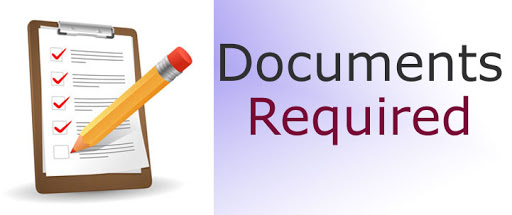- By TOP CHINA FREIGHT
- September 27, 2025
- Air Freight, Shipping
Table of Contents
Air freight from China to Malaysia remains one of the most efficient solutions for businesses seeking speed, reliability, and secure cargo movement. While sea freight is cheaper, many importers rely on air freight to save time and meet tight delivery schedules. However, navigating customs, understanding costs, and choosing the right logistics partner can be challenging. This guide explains everything you need for a smooth shipping process.

What makes air freight from China to Malaysia popular?
Air freight is favored due to its unmatched speed. While sea freight may take 7–14 days, air freight delivers in just 1–4 days depending on the route. Businesses importing electronics, fashion, or perishable goods often choose air transport to maintain supply chain efficiency.
Moreover, Malaysia’s airports—such as Kuala Lumpur International Airport (KLIA) and Penang International Airport—offer direct and connecting flights from major Chinese hubs like Guangzhou, Shanghai, and Shenzhen. This connectivity ensures frequent schedules and reliable delivery.
How long does air freight from China to Malaysia take?
Transit times depend on the origin city, airline, and cargo handling process. Direct flights are faster but often more expensive. Below is a general breakdown:
| Origin City (China) | Destination (Malaysia) | Average Transit Time | Notes |
|---|---|---|---|
| Guangzhou | Kuala Lumpur | 1–2 days | Direct flights available |
| Shanghai | Penang | 2–3 days | May include transit stops |
| Shenzhen | Kuala Lumpur | 1–2 days | High flight frequency |
| Beijing | Johor Bahru | 3–4 days | Longer customs clearance |
Therefore, businesses can plan shipments based on urgency, balancing costs with speed.
What are the costs of air freight from China to Malaysia?

Air freight charges are typically calculated based on chargeable weight, which is the higher of actual weight or volumetric weight. Airlines and freight forwarders apply rates per kilogram, with discounts for larger volumes.
| Weight Bracket | Estimated Cost per KG (USD) | Transit Time | Best For |
|---|---|---|---|
| 1–45 kg | $6 – $9 | 2–4 days | Samples, urgent parcels |
| 46–100 kg | $5 – $7 | 2–4 days | Small commercial goods |
| 101–300 kg | $4 – $6 | 2–3 days | Medium shipments |
| 300+ kg | $3 – $5 | 1–3 days | Bulk cargo |
Additionally, fuel surcharges, customs clearance fees, and local delivery charges may apply.
Which documents are required for air freight to Malaysia?

Accurate documentation is vital for avoiding customs delays. Common requirements include:
| Document | Purpose | Issued By |
|---|---|---|
| Commercial Invoice | Declares value of goods | Exporter |
| Packing List | Details cargo weight and dimensions | Exporter |
| Air Waybill (AWB) | Contract of carriage | Airline/Freight Forwarder |
| Import License | For restricted goods | Malaysian Authorities |
| Certificate of Origin | Proof of product origin | Chamber of Commerce |
Failure to provide proper documentation often leads to clearance delays or fines.
How does air freight compare with sea freight from China to Malaysia?
| Factor | Air Freight | Sea Freight |
|---|---|---|
| Transit Time | 1–4 days | 7–14 days |
| Cost | Higher | Lower |
| Cargo Size | Limited | Large |
| Reliability | Very high | High |
| Best For | Urgent, high-value, perishable goods | Bulk, non-urgent cargo |
While air freight is faster, it is generally used for time-sensitive shipments where value justifies the cost.
What types of cargo are best shipped by air?
Not every shipment benefits from air transport. Typically, air freight suits:
- Electronics and mobile devices
- Fashion and seasonal products
- Pharmaceuticals and medical supplies
- Perishable food and flowers
- High-value items requiring secure transit
For bulky, low-value goods, sea freight remains more economical.
Case Study: Electronics shipment from Shenzhen to Kuala Lumpur

A Malaysian importer ordered 150 kg of smartphones from a Shenzhen supplier. Sea freight would take 10 days, risking stockouts during a sales promotion. The importer opted for air freight, with a cost of $5 per kg and a delivery time of 2 days. Despite higher costs, the shipment arrived on time, ensuring product availability and boosting sales. This highlights the role of air freight in supporting just-in-time inventory strategies.
What challenges should importers prepare for?
Even though air freight is fast, shippers may encounter:
- Customs clearance delays if documents are incomplete.
- Higher freight costs during peak seasons like Chinese New Year.
- Weight restrictions for oversized cargo.
- Handling fees at airports that may increase total costs.
Planning ahead and working with an experienced freight forwarder minimizes these risks.
What are the advantages and disadvantages of air freight?
| Advantages | Disadvantages |
|---|---|
| Fastest transit time | Higher cost than sea or rail |
| High reliability and security | Limited capacity for bulky goods |
| Suitable for urgent or high-value shipments | Sensitive to fuel price fluctuations |
| Frequent flight schedules | Peak season surcharges apply |
How can businesses reduce air freight costs?
Several strategies can help:
1.Consolidation:
Combine multiple small shipments into one larger consignment.
2.Flexible scheduling:
Avoid peak periods when rates surge.
3.Optimize packaging:
Reduce volumetric weight by minimizing empty space.
4.Negotiate contracts:
Long-term agreements with freight forwarders often secure better rates.
By implementing these tactics, businesses can improve efficiency and lower shipping costs.
Conclusion
Air freight from China to Malaysia provides unmatched speed and reliability for businesses that value timely delivery. While it is more expensive than sea freight, the benefits often outweigh the costs, especially for high-value or time-sensitive goods. Importers should carefully prepare documentation, evaluate costs, and choose experienced logistics partners to ensure smooth operations. Ultimately, selecting air freight ensures supply chain stability and keeps products moving quickly between China and Malaysia.
Need a Shipping Quote?
If you want expert guidance and peace of mind, our team is ready to assist.
TJ China Freight offers tailored solutions to help businesses of all sizes ship more reliably from China.

FAQ
Q1:What is the maximum weight allowed for air freight?
Most airlines accept up to 1000 kg per shipment, but oversized cargo may need special arrangements.
Q2:Can individuals ship goods by air from China to Malaysia?
Yes, individuals can send personal or small commercial shipments through air freight services.
Q3:How are air freight rates calculated?
Rates are based on chargeable weight, whichever is greater between actual and volumetric weight.
Q4:Which airports in Malaysia handle air freight from China?
Kuala Lumpur, Penang, and Johor Bahru airports are the main cargo hubs.
Q5:Are import duties high in Malaysia?
Duties vary by product type, but most goods incur customs duty plus sales tax.
